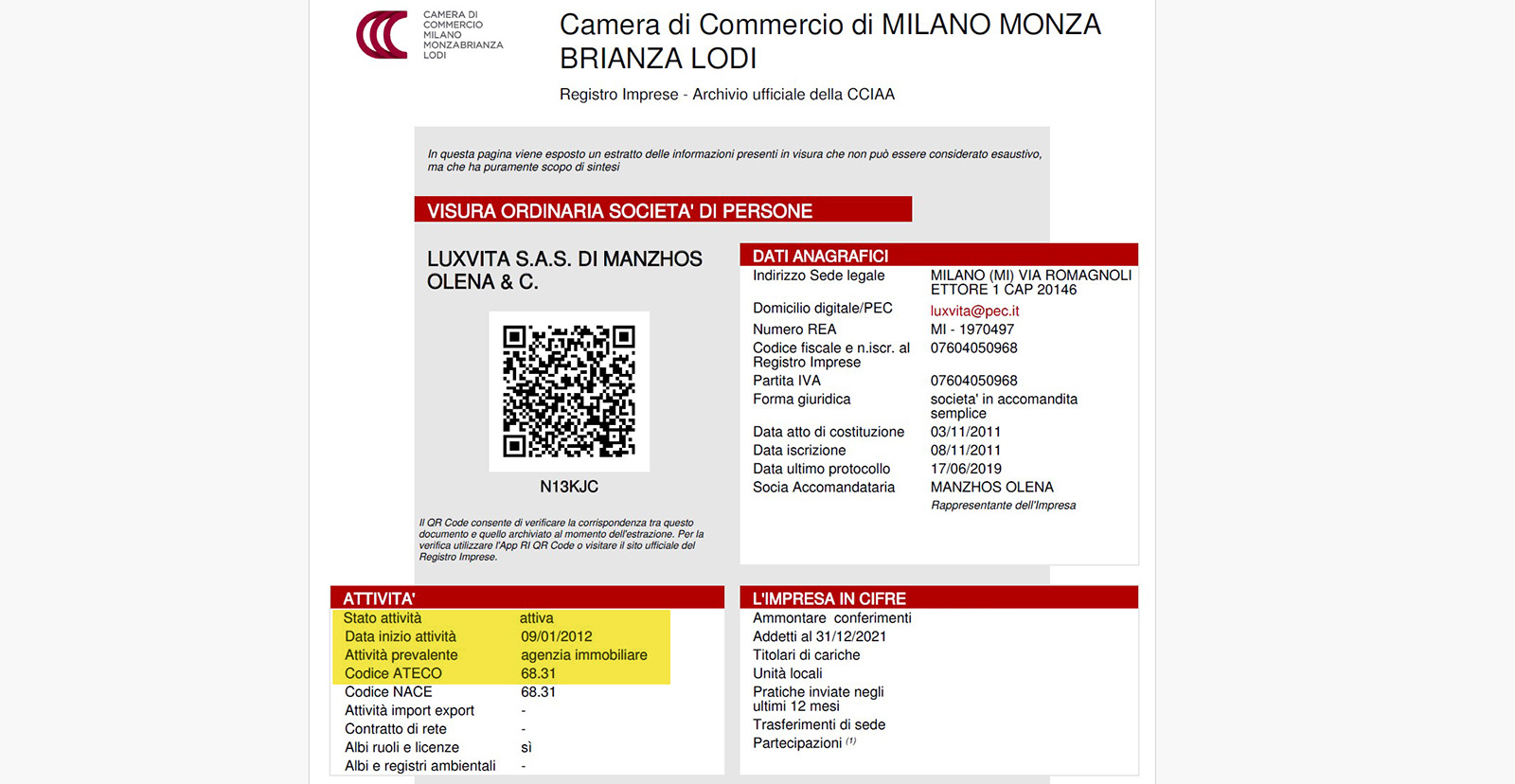Thinking about buying a home in Italy, but already feeling lost in a sea of legal jargon, taxes, and tricky translations?
Fear not, you’re not alone.
With the right agent by your side, the process becomes easier and yes—dare I say—almost enjoyable!
A trusted, licensed real estate agent in Italy is not just a house hunter, but a crucial guide through the country’s complexity and cultural nuances.
Good news: Italy’s got 40,000 registered agents, so you’ll definitely find someone who’s got your back!
Bad news: Many work in micro-agencies, and some aren’t legally certified.
In this guide, I will explain everything you need to know to find the right real estate agent in Italy.
From personal experience, I can tell you that each purchase has its own unique twists and turns. Having worked in luxury real estate for years, I’ve helped many buyers like you navigate these challenges, ensuring that they can enjoy the process.

In a heartbeat
- In Italy, buying property isn’t a walk in the park. Think more of an ‘obstacle course’ with mandatory notaries, binding contracts, and enough paperwork to make your head spin—trust me, you'll want a licensed agent to lead you through this maze.
- When choosing an agent in Italy, make sure they're legit—licensed, knowledgeable about the area, and experienced in international deals.
- Don’t just trust anyone with a fancy business card—double-check they’re the real deal with the Chamber of Commerce. Then, do some research—read reviews or ask around before entrusting them with your future.
- Getting an English-speaking agent in Italy isn’t just about avoiding hand gestures during negotiations—it’s about finding someone who can translate both the language and the culture, ensuring smooth deals and no lost-in-translation moments. Instagram and pro associations are your new best friends!
How to look for an English-speaking realtor
Hiring a real estate agent who speaks English is more than just language; it’s also about cultural understanding… a bridge between you and local sellers.
For instance, negotiations in Italy tend to be less aggressive than in some other countries, and having an agent who understands both sides’ perspectives can significantly affect the outcome.
Check out professional associations like FIAIP and FIMAA - these pros know their stuff and have directories of agents. Many of them specialize in assisting foreign buyers and speak multiple languages, including English.
Another increasingly effective way to find an English-speaking agent is through social media platforms like Instagram. More and more real estate agents in Italy now use Instagram to showcase their properties and connect with potential buyers.
By searching for hashtags, you can often find agents who speak English and have a deep understanding of the international property market.
Key qualities of a real estate agent in Italy
Being a licensed agent, I know that Italy is a nuanced country!
Therefore… a trusted agent is your guide through the transaction’s legal, financial, and cultural aspects.
There are three key qualities you should look for when selecting an agent:
- Accreditation: Italian real estate agents are not just intermediaries; they are professionals regulated by law and registered with the local Chamber of Commerce. The registration ensures that the agent has met specific legal and educational requirements, including passing an exam and being fully insured.
- Local expertise: Italy has distinct regions, each with its property market dynamics, legal considerations, and cultural nuances. As an international buyer, it would help if you had insights into the best areas to buy, taking into consideration factors like property appreciation, rental potential, and community infrastructure. This is why it’s important to choose an agent who specializes in the region or type of property you’re interested in.
- Experience with international transactions: Cross-border transactions bring additional challenges, including tax implications, exchange rates, and legal frameworks. That’s why a trusted real estate agent must have experience handling international transactions to ensure you avoid common pitfalls and unnecessary complications.
Did you know that:
- Italy has approximately 40,000 real estate agents, and 94% of them work in agencies with fewer than 2 employees. Italy is a country of individualism and micro-enterprises.
- Unregistered estate agents are not entitled to receive commissions.
Steps to find the right real estate agent
The first, and perhaps most important, step is to ensure that the real estate agent you’re considering is properly licensed and qualified.
In Italy, all real estate agents are required to be registered with the Administrative Economic Directory (Repertorio Economico Amministrativo - REA), established at the local Chamber of Commerce. This registration guarantees they have passed the required exams and have professional liability insurance, ensuring they meet the legal requirements to operate.
The agent can be registered as a sole professional or as an estate agency. For example, I am Olena Manzhos, a licensed real estate agent and partner owner of Luxvita sas.

The benefits of hiring a trusted licensed real estate agent are having a solid network of local professionals, such as notaries, surveyors, and contractors, which is invaluable during purchasing.
How to check a realtor license in Italy
To verify an agent’s license, you can:
- Visit “Cercacasa” the website owned by FIAIP (the largest association of professional real estate agents in Italy) that contains the list of all licensed real estate agents and agencies. Please visit Cercacasa [1] and search the agent by name, or location. Unfortunately, the site is only in the Italian language.
- Ask the agent for his registration number and check it with the Chamber of Commerce [2];
- Look up the agent through industry associations such as FIAIP [3] (Federazione Italiana Agenti Immobiliari Professionali) or FIMAA (Federazione Italiana Mediatori Agenti d’Affari). Membership in these associations indicates that the agent adheres to strict professional standards and ongoing education requirements.
Another key step is gathering recommendations and reading reviews from other clients, even though word of mouth remains a powerful way to find reputable agents in Italy.
If you have friends or acquaintances who have purchased property in Italy, ask them about their experience. Personal recommendations often lead you to trustworthy agents who have proven reliable.
In addition to personal recommendations, online reviews are invaluable resources.
Insurance policy and squatting
By law, all licensed real estate agents must have a professional indemnity insurance policy to cover the damage their profession may cause.
My advice: if you meet an abusive real estate agent, the biggest risk you run is precisely not being protected in the event of financial damage. I recommend you report it to the UNAF office of the association FIAIP (Federazione Italiana Agenti Immobiliari Professionali) [
4].
Squatting is more widespread than you might imagine. It is illegal and punishable by law (Article 348 of the Criminal Code [5] and Article 12 of Law No. 3/2018).
Trust matters in the Italian real estate market
An accredited and experienced real estate agent matters in the Italian market, as the buying process differs significantly; here is how:
- Notary: In Italy, the notary (notaio) is mandatory and acts as an impartial public official who ensures that the sale complies with legal requirements, pays all taxes related to the transaction, verifies the property's ownership status, and handles the final deed of sale (rogito). Notary's role is much more limited in other countries, as the overall transaction process is typically handled by real estate attorneys or escrow agents, depending on the country.
- Agent: Italian real estate agents must be registered with the Chamber of Commerce, ensuring they meet specific legal and educational requirements. Agents must, by law, protect buyers and sellers from fraud and ensure high professionalism.
- Preliminary contract: The preliminary contract (compromesso / preliminare) is very frequent and is a binding agreement between buyer and seller that sets the terms of the sale before the final contract. Typically, around 10-30%, a deposit is paid at this stage. If the buyer backs out, he loses the deposit. If the seller backs out, he must refund the buyer twice the deposit.
Are you about to buy a house and want to know its real value?
Contact me right now... with the ‘Rogiti in chiaro’ service you will receive notarial deeds of properties sold in the same building!
- Attorney: It is not standard practice to have a personal attorney, as the notary and the agent represent both parties. However, in complex transactions or for foreign buyers, we recommend hiring a lawyer for legal advice.
- Final deed: The final deed of sale (rogito) must be signed in the presence of a notary, who ensures all legal formalities are complete. The buyer and seller must typically be present at the signing, or represented by a power of attorney. After signing, the notary registers the property transfer with the relevant authorities.
- Mortgages and Financing: In Italy, securing a mortgage is a lengthy process, especially for non-residents. Loan approval does not happen before the buyer makes an offer, while pre-approval is a standard practice.
- Contingencies and Inspections: In Italy, buyers do not have a set period to perform home inspections and negotiate repairs or price adjustments. Those activities must be conducted before signing the preliminary contract (compromesso). Once the preliminary contract is signed, the sale is binding.
- Property Taxes and Fees: The buyer is responsible for paying several taxes at closing, including property taxes, transfer taxes, land registry tax, and cadastral tax (taxes are not split between the buyer and seller). Taxes vary based on the buyer’s residency status and whether the property is a primary residence (prima casa) or a second home. Fees for the notary and agent are also the buyer's responsibility.
So… a trusted real estate agent helps you navigate zoning laws, understand property taxes, and ensure that the property is free of legal disputes, such as outstanding mortgages or building violations.
My recommendation: Ask your trustworthy Italian agent to conduct thorough due diligence, ensure that the property you are considering is clear of any legal obstacles, and guide you through each step of the purchasing process, from the initial offer to the final deed of sale (known as the “rogito”).
A skilled agent will also be well-versed in the foreign ownership laws, such as the requirement for a tax code (codice fiscale) and the verification of reciprocity agreements between Italy and your home country. These are crucial elements that, if mishandled, could jeopardize your entire purchase.
Elena Manzhos: Mother of two beautiful children, wife, and real estate agent for over 15 years. More than 20 years ago, I moved to Italy from Eastern Europe. I have always had a deep-seated passion for houses; as a child for the Barbie house, and now as a real estate professional, my love for luxurious properties is unwavering.
Fiaip,
Linkedin,
Instagram,
Facebook.